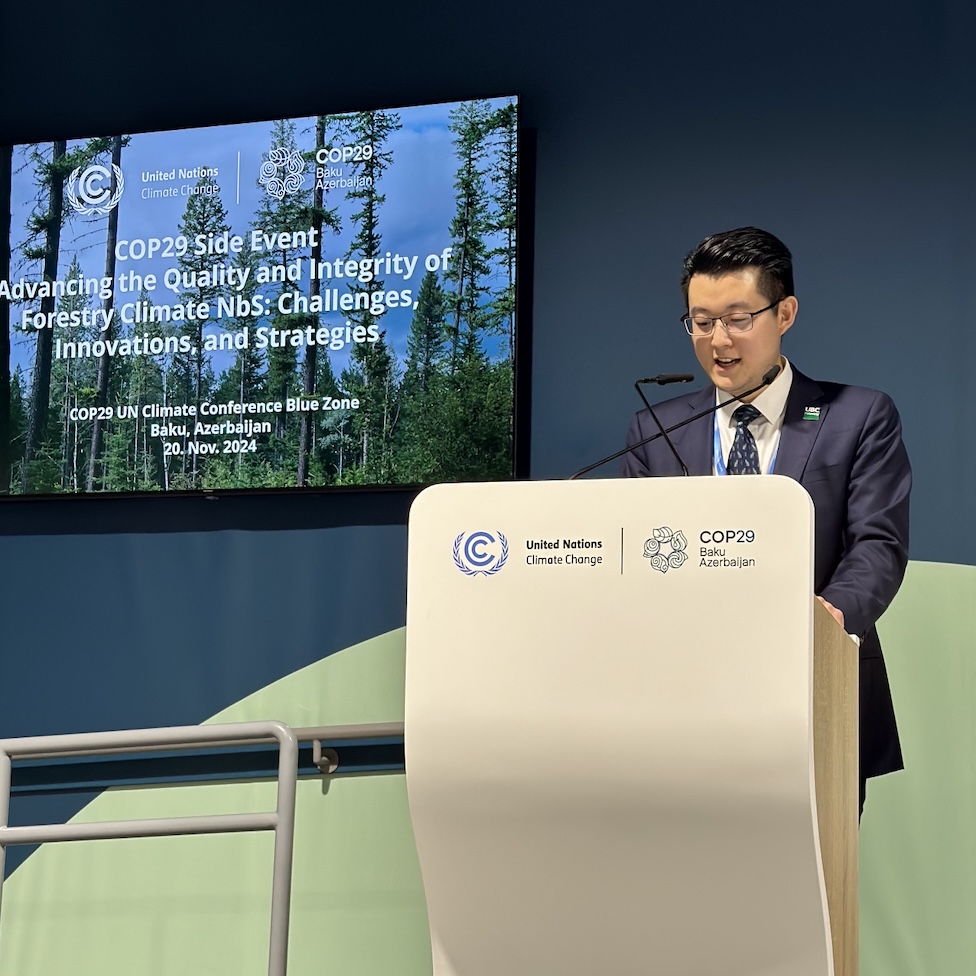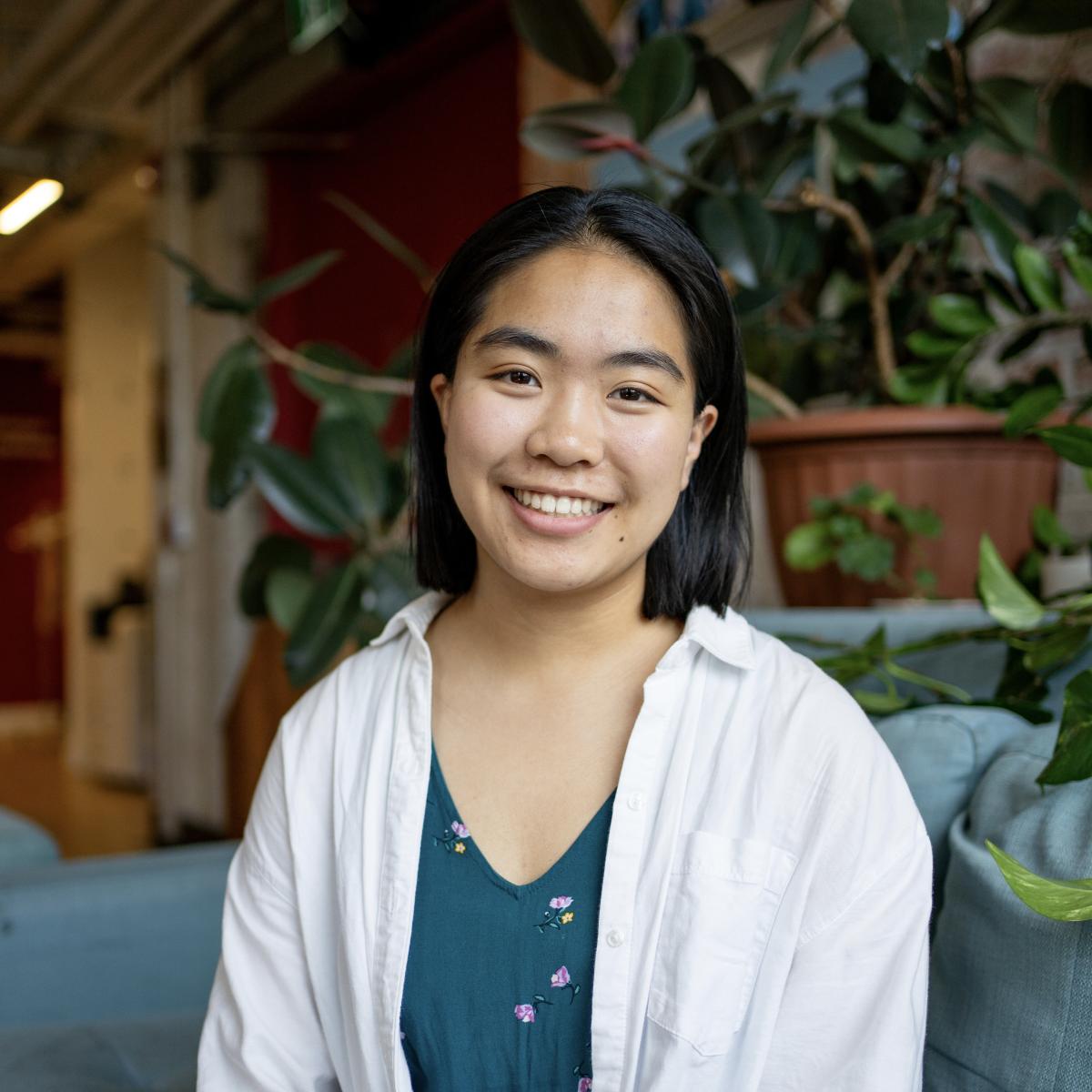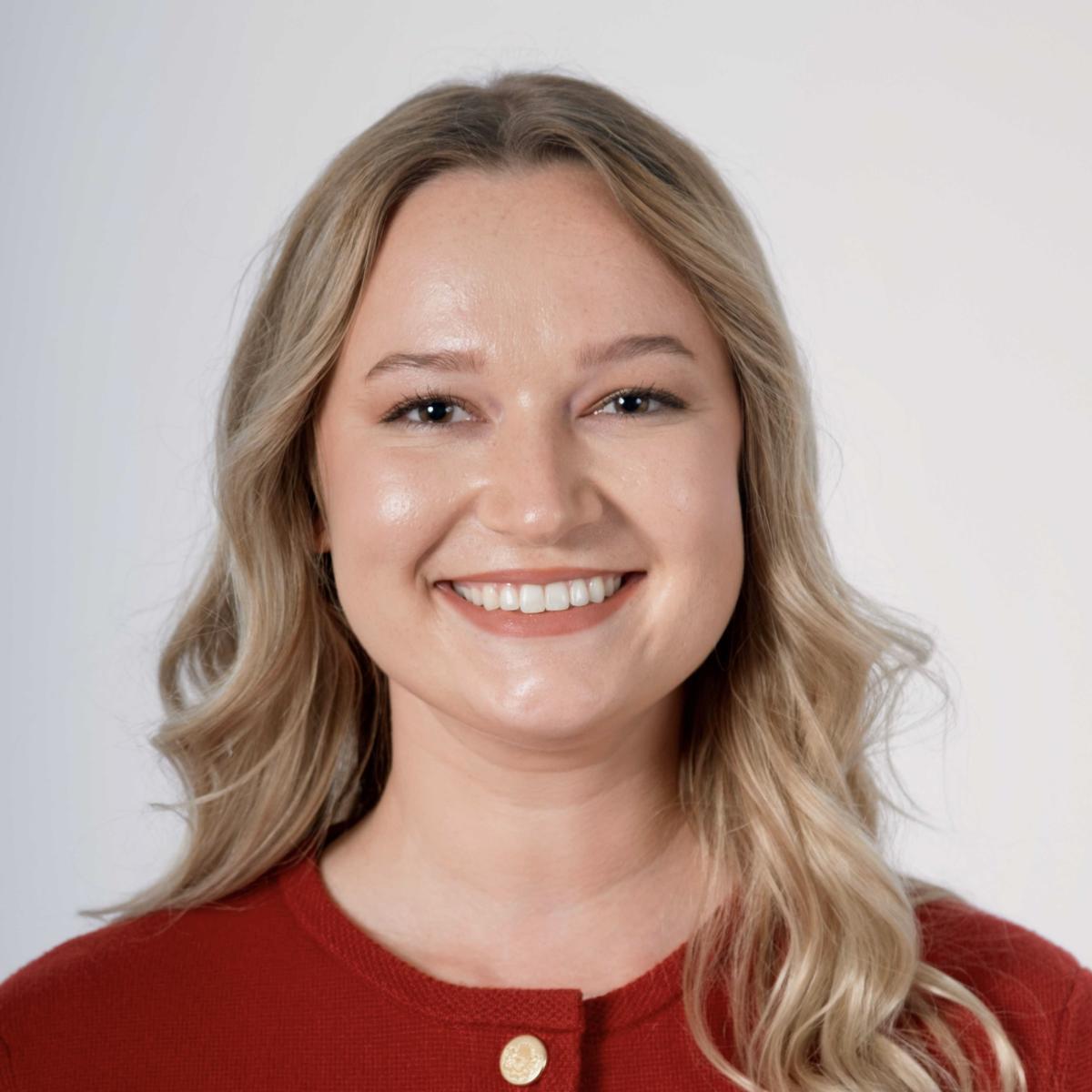
The 29th UN Climate Conference of Parties (COP29) in Baku, Azerbaijan has ended and news is rife with hot takes. The UBC Sustainability Hub caught up with UBC COP29 delegates about their experience at the conference.
Brinnae Cooper, Master of Community and Regional Planning, School of Community and Regional Planning
The stark contrast between the lives of those in frontline communities and my own was striking. These voices serve as a powerful reminder that the climate crisis is not just an environmental issue, but also a deeply moral one. One delegate described the loss of their ecosystems as, “a loved one with a terminal illness ... we know that this terminal illness is treatable, but the people who can treat it are not responding to the urgency that is desperately needed.” This reality highlights the persistent failure of advanced economies to fulfill their climate finance commitments, underscoring the urgent need for structural reforms in how climate responsibilities are shared across nations.
Amidst the global call for more action, there were some promising efforts showcased at this year’s conference. Initiatives like Climate TRACE, which improves transparency and facilitates comprehensive emissions tracking, and calls to integrate equity into food systems and urban resilience, demonstrate the potential of innovative, inclusive solutions. While the annual COP stands as a defining moment, every day outside of this conference is when the gap between promises and action must be closed. The message is clear: time has nearly run out, and we will be met at the frontlines before we know it.
Carol Liao, Associate Professor, Peter A. Allard School of Law
Check out these videos Carol posted during the conference, live from Baku, Azerbaijan!
Chunyu Pan, PhD student, Forest Resources Management, Faculty of Forestry
This year was my second COP, and it has been fascinating for me, especially the key negotiation topics like Paris Agreement Articles 6.2 and 6.4, as well as the new collective quantified goal on climate finance (NCQG). I attended a few negotiation sessions and was intrigued by how countries interacted with each other. It was interesting to observe the game between the two sides, where most Annex I countries would like to determine the structure and contributors of the NCQG first before talking about the quantum, while the non-Annex countries were pursuing the exact figure of 1.3 trillion USD. As a second-week attendee, I was also fortunate to witness the major breakthroughs in Baku, especially the increase of this finance from 100 billion to 300 billion USD. In addition, COP29 establishes a foundation of a 1.3 trillion USD goal, leaving room for future negotiations. I'm still optimistic even though we will be under the dome of the Trump administration in the coming COPs.
Professor Guangyu Wang and myself as well as several co-organizers successfully organized an official UN side event. The event was about advancing the quality and integrity of forest carbon offset projects in the global carbon markets, especially in the voluntary carbon market. The event yielded fruitful results from the keynote presentations and valuable insights shared by the panelists, which can be significantly meaningful to the global advancement of high-quality and high-integrity forest carbon nature-based solutions.


Dean Rohman, Bachelor of Arts, Political Science, Faculty of Arts
I have found a new hope in the fight against the climate crisis. By attending and observing dialogues, meetings, and press conferences facilitated and led by youth, I am excited to see more youth engagement in climate negotiations. Young people globally are increasingly concerned about how the climate emergency affects them and their communities. It is crucial for world leaders to understand and address the needs of youth that are the most vulnerable to the effects of climate change, and it is important for the youth of the Global South to be equitably represented in future conversations around climate change, adaptation, and climate finance. There is still a lot of work left to be done, and the burden to find solutions and adapt cannot solely be put on young people, Indigenous peoples, vulnerable populations, LDCs (Least Developed Countries), and Developing nations worldwide.
Emilie Wang, Doctor of Medicine Undergraduate Program, Faculty of Medicine
From my work within planetary health, I have come to realize the significance of message framing for mobilizing the public in the face of the climate crisis. Beyond evidence-based knowledge-to-action, it is paramount to frame climate change's impact on human health and wellbeing. From partaking in COP29, the connection between individual-level care and public health crises like climate change requiring a systems-level approach stood out to me and reaffirmed the urgent need for equity-driven resilience planning.
On Nov 18th, global commitments and declarations on methane reduction with the Reducing Methane from Organic Waste Declaration were launched at COP29. Due to methane’s toxicity, status as a potent greenhouse gas, and impact on environmental degradation I worked with the Canadian Association of Physicians for the Environment (CAPE) in drafting letters to BC policymakers for greater regulation. Working with CAPE has complemented international momentum by bridging the gap between high-level declarations and on-the-ground policy advocacy. This COP29 experience has deepened my commitment to acting on behalf of the evidence and translating global insights into tangible, community-driven change.


Stephanie Yan, Bachelor of Applied Science, Chemical and Biological Engineering, Faculty of Applied Science
With over 65,000 delegates, COP29 emphasized climate finance alongside clean energy transitions, adaptation, mitigation, and uplifting nature, people, and livelihoods. A key outcome was the adoption of the New Collective Quantified Goal (NCQG), a financial target under the Paris Agreement to support developing countries post-2025, securing $300 billion annually by 2035—triple the 2009 target—alongside a broader aim to mobilize $1.3 trillion from public and private sources. However, the final statement of the conference omitted the agreed upon commitment to “transition away from fossil fuels,” signaling a concerning backslide. It was also reflected by UN Secretary-General António Guterres’s opening remarks, “Pay up, or humanity will pay the price,” which were echoed by activists like Lidy Nacpil, who urged Global North leaders and corporations to simply put, pay up for all the degradation that is being made. With youth bearing the brunt of climate consequences, their representation at these international stages is critical. To ensure a sustainable future, it is imperative to reflect on past actions, hold nations and corporations accountable, and build strong agreements that address interconnected climate challenges.
Learn more
Interested in learning more about COP and how academics and youth can get involved?
Check out the UBC at COP webpage, the academic constituency RINGO,
the youth constituency YOUNGO, and Youth4Climate.
